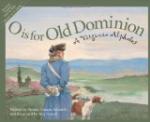Of course it was bad form for us to stand there staring at the Colonel while we reasoned out all this matter of the beards and the wigs. Now the Commodore, at a suggestion from Nautica’s elbow, shifted to the other foot and cleared his throat to say something. But what was there to say? It is a little trying, this meeting people who cannot converse intelligently upon anything that has happened since the seventeenth century.
At last, we murmured something about Charles II; and, to make sure, let the murmuring run over a little into the reigns of James II and of William and Mary, and then passed on; though the Commodore felt there should have been at least some slight allusion to the pyramids and the cave-dwellers.
We must have taken very slowly the few steps that carried us to the next member of the receiving party; for in that time the world moved on a generation, and we found ourselves paying respects to no less a personage than “King” Carter himself. Too modest to suppose that he had come over from Corotoman on our account, we strongly suspected that the matter of alliance between the families of Hill and of Carter was in the air; which would account for the presence of the potentate of the Rappahannock.
He looked very imposing in his velvets and his elaborate, powdered periwig, standing ceremoniously, one hand thrust within his rich, half-open waistcoat.
Now was the time for all that we knew about Queen Anne and King George the First, and about the recent removal of the colonial capital from James Towne to Williamsburg.
The next dignitaries were very near; but again it took a generation to get to them, the names being John Carter (usually called Secretary Carter from his important colonial office) and Elizabeth Hill Carter, his wife. These were the young people who united the houses of Shirley and Corotoman. So, even yet, we had got down only to the days of George the Second.
Secretary and Mrs. Carter were a handsome pair; she, fair and girlish, with an armful of roses; he, dark and courtly and one of the most attractive looking figures we had met in our travels in Colonial-land. These people could not tell us much about the old manor-house; for, while possessing two of the finest plantations in the colonies, Shirley and Corotoman, they made their home chiefly at Williamsburg.
However, they were especially interesting people to meet because of their familiarity with the first half of the eighteenth century, that brightest and most prosperous period of colonial life. They could tell us at first hand of those happy, easy-going times that lay between the long struggle to establish the colonies and the fierce struggle to make them free.
Though neither Mr. nor Mrs. Carter exactly said so, yet we gathered the idea that those were days of much dress and frivolity. It seems that ships came from everywhere with handsome fabrics and costly trifles; and that rich colonials strove so manfully and so womanfully to follow the capricious foreign fashions (by means of dressed dolls received from Paris and London) that usually they were not more than a year or two behind the styles.




